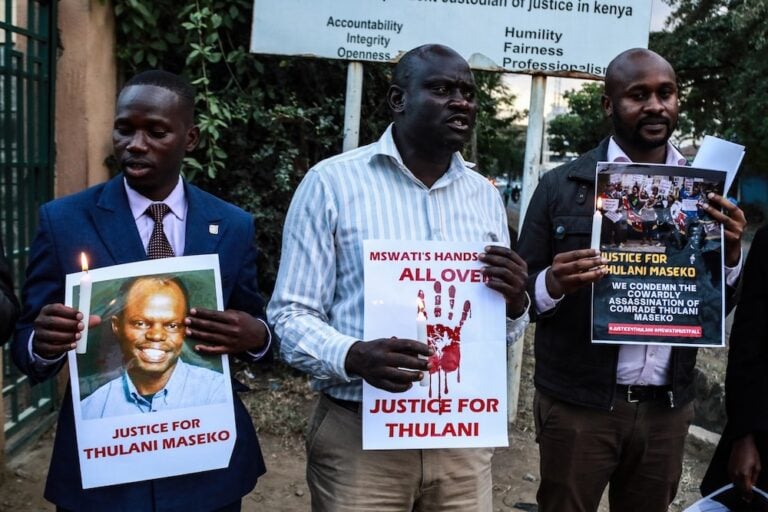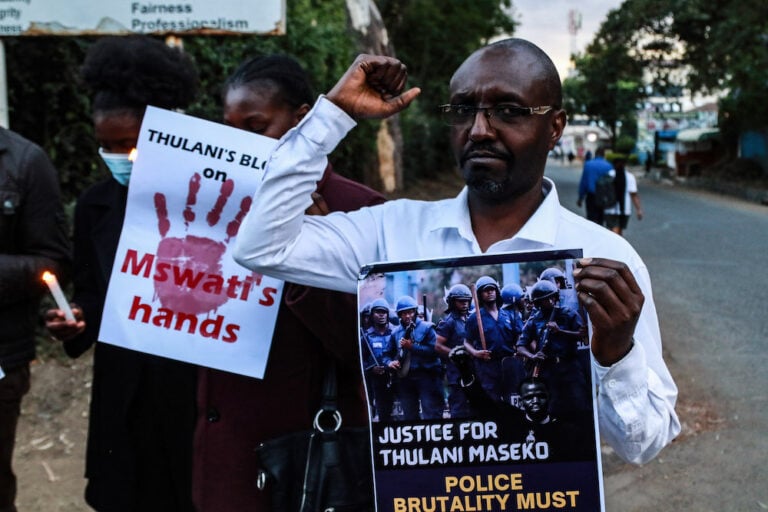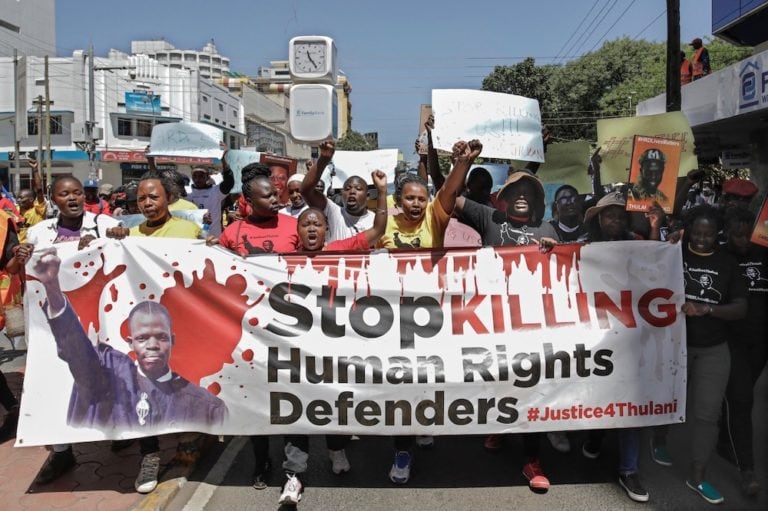(MISA/IFEX) – Following the closure and banning of two newspapers, the “Guardian” and the “Nation”, on 2 and 4 May 2001, respectively, members of parliament (MPs) are now demanding that the Media Council Bill be brought back to parliament for adoption. This is a direct result of a recent article in the “Times of Swaziland”, […]
(MISA/IFEX) – Following the closure and banning of two newspapers, the “Guardian” and the “Nation”, on 2 and 4 May 2001, respectively, members of parliament (MPs) are now demanding that the Media Council Bill be brought back to parliament for adoption.
This is a direct result of a recent article in the “Times of Swaziland”, which reported that on his way to the United States, King Mswati III had stopped over in London for a reunion with Queen LaMbikiza Mngomezulu, a senior wife who had initially left Swaziland in the midst of rumours that the king was poisoned.
The MPs regarded the report as an invasion of the king’s privacy and felt that the king should be protected from being reported on in the media.
The Media Bill was deferred about five years ago, when stakeholders felt it was a government plan to control the press.
Background Information
The two newspapers were banned after they printed articles about King Mswati III’s health condition and rumours that his first wife, Queen Mngomezulu, had tried to poison him. The same stories were published in international media almost two weeks earlier.
On 2 May, police arrested “Guardian” editor Thulani Mthethwa and drove him to police headquarters in Mbabane, where he was interrogated at length over stories in his newspaper about activities in King Mswati III’s palace. He was released after several hours.
On 4 May, newly appointed Registrar of Newspapers Sam Malinga ordered the “Guardian” to cease publishing immediately, saying the publication was not lawfully registered with his office. On the same day, police were deployed throughout the country to collect copies of the newspaper. Other officers were stationed at Oshoek Border Post to intercept the newspaper before it was brought into the country from Middelburg, South Africa, where it is printed. The papers were then sent to police headquarters in Mbabane.
Meanwhile, in a so-called Extraordinary Gazette Order, Information Minister Dlamini suspended both the “Guardian” and the “Nation”. The minister cited Section 3 of the Proscribed Publications Act of 1968, which gives his office unlimited powers to ban or suspend publications that do not conform with “Swazi morality and ideals.”
Both the “Guardian” and the “Nation” are known to support democratic government in Swaziland; both are critical of the fact that King Mswati III has governed by decree since the suspension of Swaziland’s constitution in 1973.
Editors for the “Guardian” and the “Nation” were due to appear in court on 14 and 15 May.


